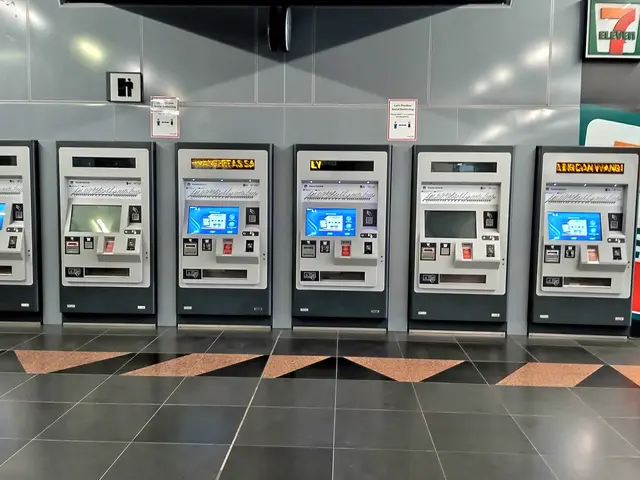Contentious Challenges in EU and ECB Italy Elections: Emergence of Right-wing Coalition Securing a Dominant Majority in the Senate
In a significant shift for Italian politics, Giorgia Meloni's Brothers of Italy party has emerged as the largest in the country's elections, securing more than 25% of the votes. This represents a substantial increase from the 4% they received in the 2018 election.
Meloni's alliance, which includes Matteo Salvini's Lega and Silvio Berlusconi's Forza Italia, has received around 43% of the votes, positioning them for a potential majority in the Italian Parliament. The alliance is projected to have at least 114 seats in the Senate, where 104 are required for a majority.
However, the right-wing bloc's victory comes with challenges. They have expressed opposition to reform of the outdated tax system and liberalization of competition, two key reforms that outgoing Prime Minister Mario Draghi had promised to qualify for EU funds. This stance could potentially lead to disagreements with the EU and increased uncertainty for Italy's economic future.
The yield on 10-year Italian bonds has risen over the weekend due to expectations of more political and financial instability in Italy because of the shift to the right. The next Italian government will face a series of overlapping crises, including the energy shortage caused by Russia's invasion of Ukraine, inflation, and undermined growth.
The Democratic Party of Enrico Letta came second with 19% of the votes and will lead the opposition. The anti-establishment Five Star Movement of Giuseppe Conte saw a late surge to around 16% and will likely be another important force in the opposition.
Giorgia Meloni has promised to keep Italy's massive debt under control and not question the country's international alliances or support for Ukraine. She has also expressed a willingness to cut EU funding to make savings and return to pre-Corona levels of support, aiming to save several billion Euros and tighten the belt.
Professor Giorgia Serughetti, from the University of Milan, predicts internal tensions within the new government due to the low support for the League. Matteo Salvini's Lega performed below average with around 9% of the votes, a significant drop from their 2018 performance. Salvini, who previously saw himself as Italy's next prime minister, has reluctantly accepted that he will play second fiddle to Giorgia Meloni's Brothers of Italy.
During the campaign, Salvini adopted a more aggressive stance on increasing debt to help Italians overcome the energy crisis and questioned the effectiveness of sanctions against Russia. A Meloni government may have to face the dilemma of increasing the budget deficit to help families and businesses, as Mario Draghi did, but resisted political pressure to do so.
The shift to the right in Italy and several Eastern European countries increases right-wing influence at the EU level, potentially leading to disagreements and increased uncertainty for the Euro. The Euro remains unchanged against the US Dollar compared to Friday evening, but a growing loss of trust could become apparent in the coming months as the new government's plans become clearer.
Despite the challenges ahead, Giorgia Meloni has won a clear majority in the Italian elections and will become the first female prime minister of Italy.
Read also:
- Peptide YY (PYY): Exploring its Role in Appetite Suppression, Intestinal Health, and Cognitive Links
- Easing Pedestrian Traffic Signal Pressure
- Astral Lore and Celestial Arrangements: Defining Terms & In-Depth Insights - Historical Accounts & Glossary of Cosmic Mythology
- ICE directed to enhance detention conditions following NYC immigrants' allegations of maltreatment








